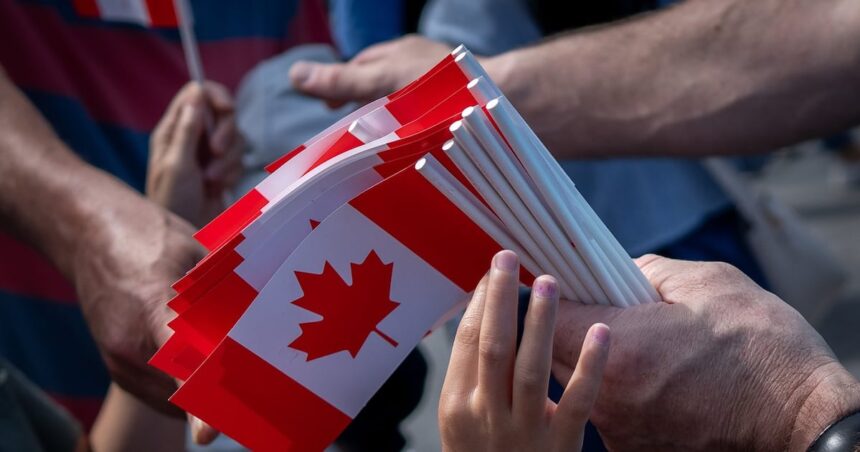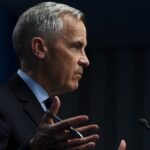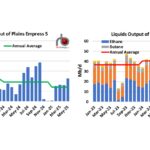The maple-decked crowds stretched as far as I could see from my vantage point near Parliament Hill. Children with faces painted red and white darted between picnic blankets while the smell of barbecue mingled with the occasional burst of firework sulfur from early celebrators. A man in his seventies, sporting a well-worn Team Canada hockey jersey, caught my eye.
“Been coming here since ’67, the Centennial,” he told me, adjusting his maple leaf cap. “Never seen anything quite like this year’s energy.”
As Canada approaches its 158th birthday celebration, something remarkable is happening across the country. After years of pandemic isolation, economic uncertainty, and increasingly divisive politics, Canadians are embracing national celebrations with unexpected fervor.
Tourism operators report record bookings for Canada Day weekend events, with major celebrations in Ottawa, Toronto, and Vancouver expected to draw the largest crowds in decades. Hotel bookings in Ottawa alone have surged 43% compared to pre-pandemic levels, according to data from the Ottawa Tourism Board.
“We’re seeing a kind of collective exhale,” explains Dr. Sophia Liu, cultural sociologist at the University of British Columbia. “After years of necessary but exhausting critical self-examination as a nation, many Canadians seem ready to celebrate the progress we’ve made while acknowledging there’s still work to do.”
That balanced perspective was evident when I visited the Indigenous-led sunrise ceremony in Stanley Park last week, where Elder Robert Nahanee welcomed both Indigenous and non-Indigenous participants. “Reconciliation isn’t about erasing celebration,” he told the gathered circle. “It’s about creating space where we can all see ourselves in this country’s story.”
In Montreal, I found Juliette Benoît putting final touches on an installation for the city’s massive downtown celebration. Her multimedia project features projection-mapped stories of new Canadians alongside fifth-generation residents.
“This isn’t about some simplistic ‘we’re all the same’ message,” Benoît explained, adjusting a projector. “It’s about seeing the complexity of what it means to be Canadian in 2025 – the tensions, the contradictions, but also the connections.”
The surge in enthusiasm has caught even veteran event organizers off guard. Applications for community celebration grants through Canadian Heritage increased by 37% this year, with particularly strong showings from small and mid-sized communities across the Prairies and Atlantic Canada, according to ministry data.
When I spoke with Heritage Minister Anita Johal last month, she emphasized the grassroots nature of this year’s revival. “The federal government can provide framework and funding, but this renewed energy we’re seeing is coming from communities themselves. People are creating the celebrations they want to see.”
This sentiment resonates with Malik Ibrahim, who arrived as a refugee from Syria in 2016 and now coordinates newcomer participation in Winnipeg’s Canada Day festivities. “For many of us who chose Canada, there’s never been confusion about celebrating this country while also wanting it to improve,” he told me over coffee at his community center. “That’s actually the most Canadian thing – to love something enough to expect better from it.”
Not everyone shares this enthusiasm. On Vancouver Island, I met with climate activist Sasha Chen, who questions the environmental impact of large celebrations. “We’re setting off fireworks while the province is facing another catastrophic wildfire season,” she pointed out. “There are ways to celebrate community without ignoring our reality.”
Indigenous perspectives remain varied. While some communities are fully engaging with Canada Day events, others maintain distance or create alternative spaces for reflection. The Indigenous Arts Festival at The Forks in Winnipeg offers one such middle path – a celebration of Indigenous culture that runs parallel to, but distinct from, official Canada Day programming.
“We can occupy the same spaces without erasing our distinct identities,” explains festival organizer Cameron Sinclair. “That’s what a healthy relationship looks like.”
The patriotic surge appears partly generational. A recent Angus Reid Institute poll shows Canadians under 30 expressing more comfort with national symbols than their immediate predecessors, though their conception of patriotism differs significantly from older generations.
“Young Canadians are redefining patriotism to be more inclusive and forward-looking,” explains pollster Deanna Wong. “They’re less interested in historical achievements and more focused on values and potential.”
This redefinition was visible at last month’s pre-Canada Day concert in Halifax, where performers ranged from traditional fiddlers to Indigenous hip-hop artists and newcomer dance troupes. The crowd, notably diverse in age and background, seemed to move seamlessly between traditions.
The current moment also reflects economic realities. With international travel costs remaining high, many Canadians are rediscovering domestic tourism. Parks Canada reports campground reservations at 92% capacity for the holiday weekend – their highest ever for the period.
As fireworks preparations continue on Parliament Hill, the debate about what healthy patriotism looks like in 2025 remains unsettled. But standing here among families spreading blankets on the lawn, watching children chase bubbles blown by street performers, the simple joy of community gathering feels like reason enough to celebrate.
When I ask eight-year-old Zara what Canada Day means to her, she barely pauses from her maple leaf face painting. “It’s when we all come outside together,” she says, “and remember we’re all neighbors.”
Perhaps that’s celebration enough.






